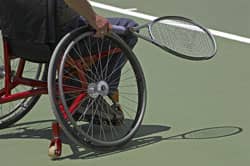by Will Boggs, MD
Last Updated: 2007-09-06 16:17:19 -0400 (Reuters Health)
NEW YORK (Reuters Health) – Subclinical sympathetic neuropathy develops early in the course of Crohn’s disease, investigators in Sweden report.
"We think that the sympathetic neuropathy may be evidence that inflammatory bowel disease is a general disease involving a great part of the body, and not only the bowel," Dr. Bodil Ohlsson from Lund University, Malmo, told Reuters Health.
Dr. Ohlsson and associates compared autonomic nerve function in controls and patients with short-duration Crohn’s disease at baseline and 7 years later to determine whether neuropathy is a concomitant manifestation of the disease or a complication that develops many years later.
Resting blood pressure did not differ between controls and patients with Crohn’s disease, but systolic blood pressure was significantly lower 8 minutes into the baseline orthostatic tilt table test in patients than in controls, the authors report in the August 14th issue of BMC Gastroenterology.
At the 7-year assessment, the systolic blood pressure 1 minute into the orthostatic tilt table test tended to be lower in patients than in controls and after 8 minutes the difference remained significant.
These orthostatic blood pressure changes were not associated with frequent relapses, severe disease, or use of aggressive immune modulating drugs. There were no differences between Crohn’s disease patients and controls in the deep breathing test and laser Doppler perfusion imaging at baseline or at the second assessment 7 years later, the investigators report.
"We should be aware that patients with Crohn’s disease for many years may have clinical signs of autonomic neuropathy," Dr. Ohlsson said. "Further, we should be aware that these patients may have changes in the enteric nervous system explaining dysmotility in the absence of inflammatory relapse of the mucosa."
"Not all attacks of constipation or diarrhea are signs of inflammatory relapses, but can be signs of autonomic or enteric neuropathy," Dr. Ohlsson explained. "Thus, these changes ought not be treated by anti-inflammatory drugs."
BMC Gastroenterology 2007;7:33.




